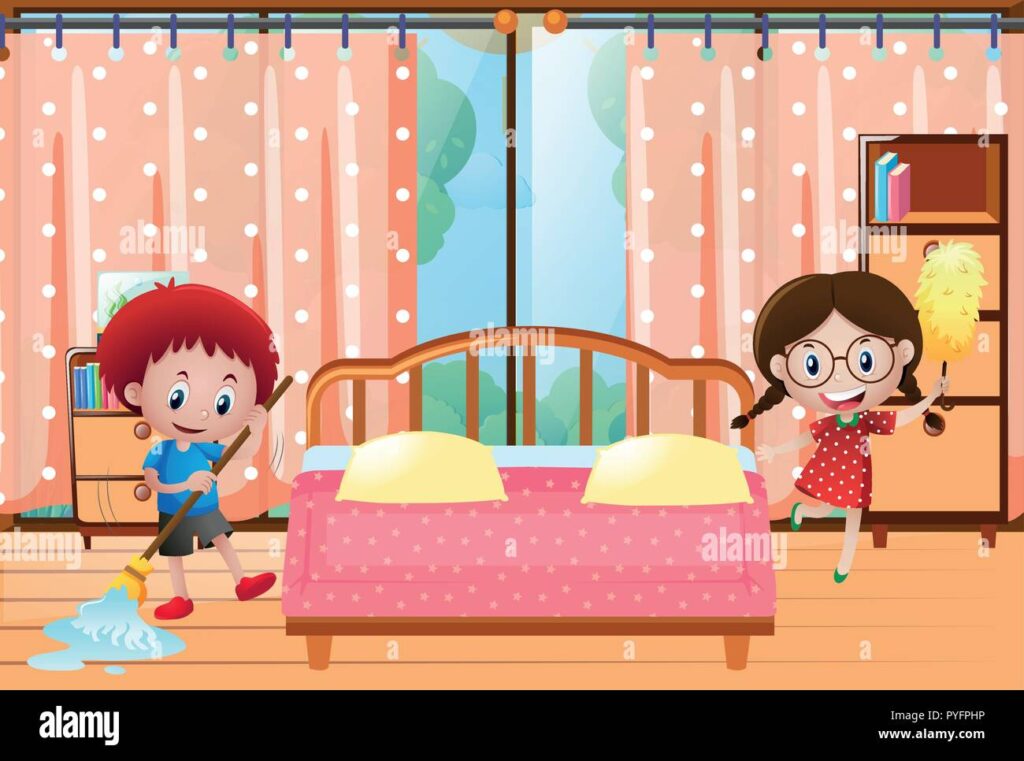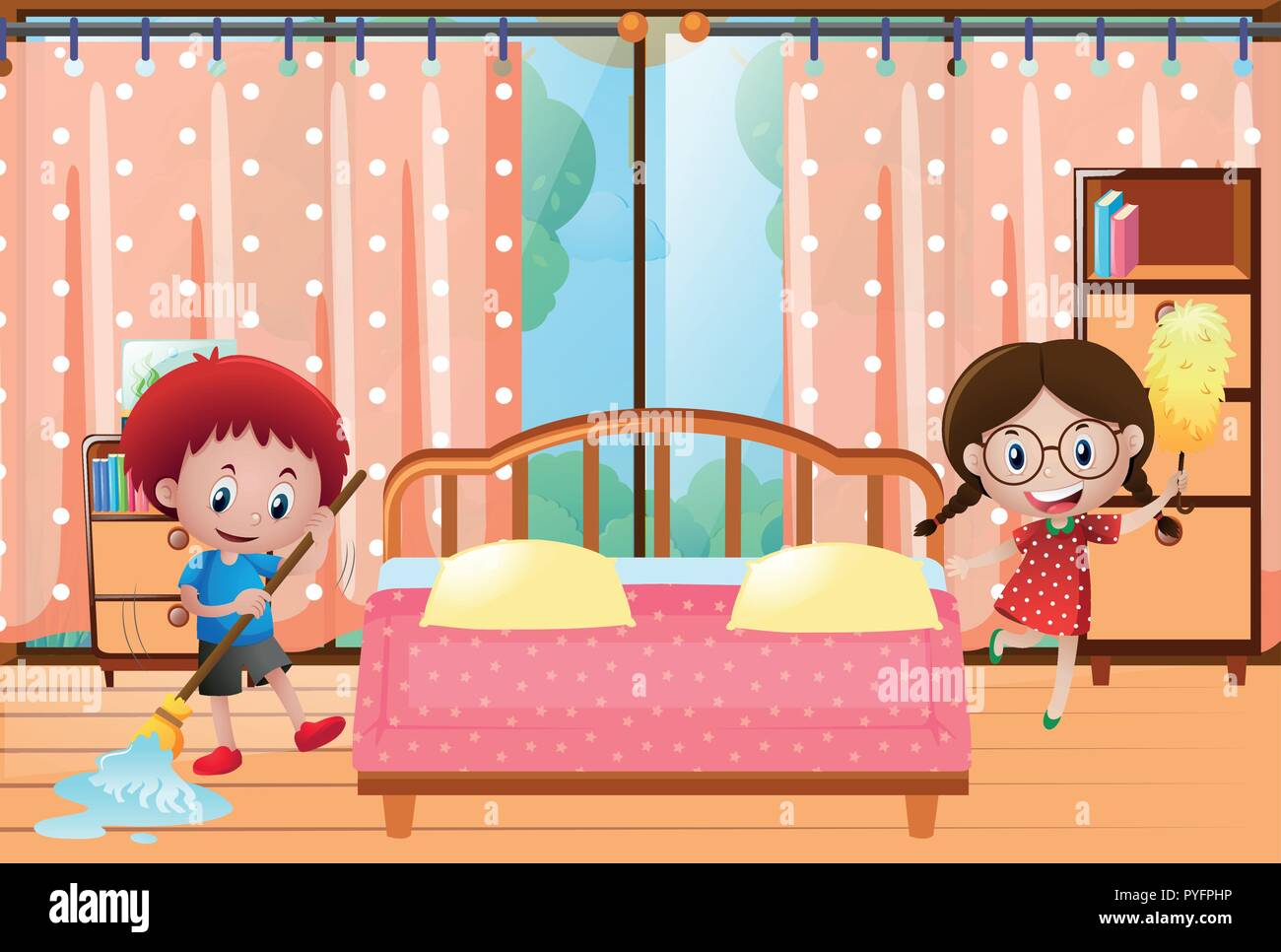
The Benefits of Kids Doing Chores: A Guide for Parents
In today’s fast-paced world, it’s easy to fall into the trap of doing everything for our children. We want to protect them, ensure their happiness, and make their lives as easy as possible. However, one crucial aspect of raising well-rounded, responsible individuals often gets overlooked: kids doing chores. Assigning age-appropriate tasks around the house isn’t just about lightening your load; it’s about equipping your children with essential life skills, fostering a sense of responsibility, and contributing to their overall development. This article delves into the multifaceted benefits of kids doing chores, providing practical advice and insights for parents looking to integrate this valuable practice into their family life.
Why Chores Matter: Beyond the Clean House
The advantages of kids doing chores extend far beyond a tidy living space. While a clean house is a welcome bonus, the real rewards lie in the character development and life skills that children acquire through these experiences. Let’s explore some of the key benefits:
Developing Responsibility and Accountability
When kids doing chores, they learn that they are responsible for their actions and their contributions to the household. Completing assigned tasks teaches them the importance of following through on commitments and being accountable for their work. This translates into other areas of their lives, such as schoolwork, extracurricular activities, and future employment. They understand that actions have consequences and that their efforts directly impact the environment around them.
Building Self-Esteem and Confidence
Successfully completing chores, even simple ones, can significantly boost a child’s self-esteem and confidence. When kids doing chores and receive positive feedback, they feel a sense of accomplishment and pride in their abilities. This positive reinforcement encourages them to take on new challenges and believe in their capacity to contribute meaningfully. Knowing they are a valuable part of the family unit strengthens their sense of belonging and self-worth.
Learning Essential Life Skills
Chores provide invaluable opportunities for children to learn practical life skills that will serve them well throughout their lives. From doing laundry and washing dishes to cooking simple meals and managing household finances (age-appropriately, of course), these tasks equip them with the knowledge and abilities they need to function independently as adults. These skills are not always explicitly taught in school, making chores a vital component of a well-rounded education. Kids doing chores learn valuable lessons in organization, time management, and problem-solving.
Fostering a Sense of Teamwork and Cooperation
When everyone in the family contributes to household chores, it fosters a sense of teamwork and cooperation. Children learn that they are part of a larger unit and that their actions affect others. They understand the importance of working together to achieve a common goal and appreciate the value of collaboration. This sense of shared responsibility strengthens family bonds and promotes a more harmonious home environment. Even young kids doing chores alongside older siblings or parents can understand the concept of teamwork.
Teaching Time Management and Organization
Integrating chores into a child’s daily or weekly routine helps them develop essential time management and organizational skills. They learn to prioritize tasks, allocate time effectively, and manage their responsibilities. This skill set is crucial for success in school, work, and all aspects of life. Learning to plan and execute tasks related to kids doing chores sets them up for success later in life.
Age-Appropriate Chores: A Guide for Parents
Choosing age-appropriate chores is essential to ensure that children are challenged but not overwhelmed. Here’s a general guideline for assigning tasks based on age:
Ages 2-3: Simple Tasks with Supervision
- Putting toys away
- Helping to tidy up books
- Wiping up spills (with assistance)
- Placing clothes in the hamper
Ages 4-5: Developing Independence
- Making their bed
- Setting the table (with supervision)
- Watering plants
- Helping with simple meal preparation (e.g., washing vegetables)
Ages 6-8: Taking on More Responsibility
- Clearing the table
- Sweeping or vacuuming floors
- Folding laundry
- Taking out the trash
Ages 9-11: Contributing to Household Maintenance
- Washing dishes
- Cleaning bathrooms
- Mowing the lawn (with supervision)
- Preparing simple meals
Ages 12+: Preparing for Adulthood
- Doing laundry independently
- Cooking meals for the family
- Managing household finances (with guidance)
- Performing more complex household repairs
Remember that these are just general guidelines. Consider your child’s individual abilities, maturity level, and interests when assigning chores. The goal is to provide them with opportunities to learn and grow, not to overwhelm or discourage them. When kids doing chores, positive reinforcement is key.
Making Chores Fun and Engaging
Let’s face it: chores aren’t always the most exciting activity. However, there are ways to make them more fun and engaging for children. Here are a few tips:
- Turn chores into a game: Make it a competition to see who can complete their tasks the fastest or most efficiently.
- Play music: Put on some upbeat music to make chores more enjoyable.
- Offer rewards: Provide small rewards for completing chores, such as extra screen time or a special treat.
- Make it a family affair: Do chores together as a family to foster a sense of teamwork and camaraderie.
- Be patient and understanding: Remember that children are still learning, and they may not always do chores perfectly. Offer encouragement and guidance along the way.
Common Mistakes to Avoid
While the benefits of kids doing chores are undeniable, it’s important to avoid common pitfalls that can undermine the process. Here are a few mistakes to avoid:
- Not setting clear expectations: Make sure children understand what is expected of them and how to complete their tasks correctly.
- Being overly critical: Offer constructive feedback but avoid being overly critical or demanding.
- Not providing adequate supervision: Provide guidance and support, especially when children are first learning new chores.
- Giving up too easily: Consistency is key. Don’t give up on chores just because your child resists or complains.
- Using chores as punishment: Chores should be seen as a responsibility, not a punishment.
The Long-Term Impact
The benefits of kids doing chores extend far beyond childhood. The skills and values they learn through these experiences will serve them well throughout their lives. They will be more responsible, independent, and self-sufficient individuals, capable of contributing meaningfully to their communities and workplaces. By instilling a sense of responsibility and teaching essential life skills, you are setting your children up for success in all aspects of their lives. When kids doing chores, they are learning valuable life lessons that will stay with them forever.
Conclusion: Investing in Your Child’s Future
In conclusion, kids doing chores is an investment in their future. It’s an opportunity to teach them valuable life skills, foster a sense of responsibility, and build their self-esteem. By assigning age-appropriate tasks, making chores fun and engaging, and avoiding common mistakes, you can help your children develop into well-rounded, responsible individuals. So, embrace the power of chores and watch your children thrive. Remember that consistency and positive reinforcement are key to success. Start small, be patient, and celebrate their accomplishments along the way. The rewards will be well worth the effort. [See also: How to Raise Responsible Children] [See also: Age-Appropriate Chores for Kids Chart] [See also: The Importance of Family Teamwork]

